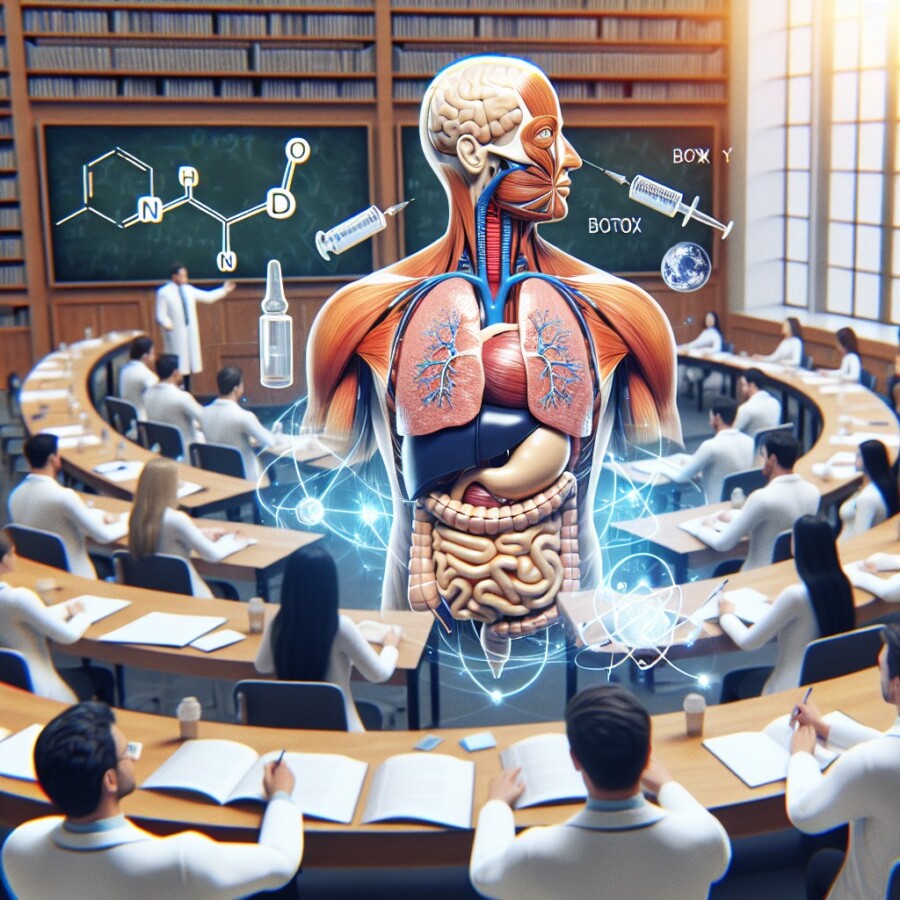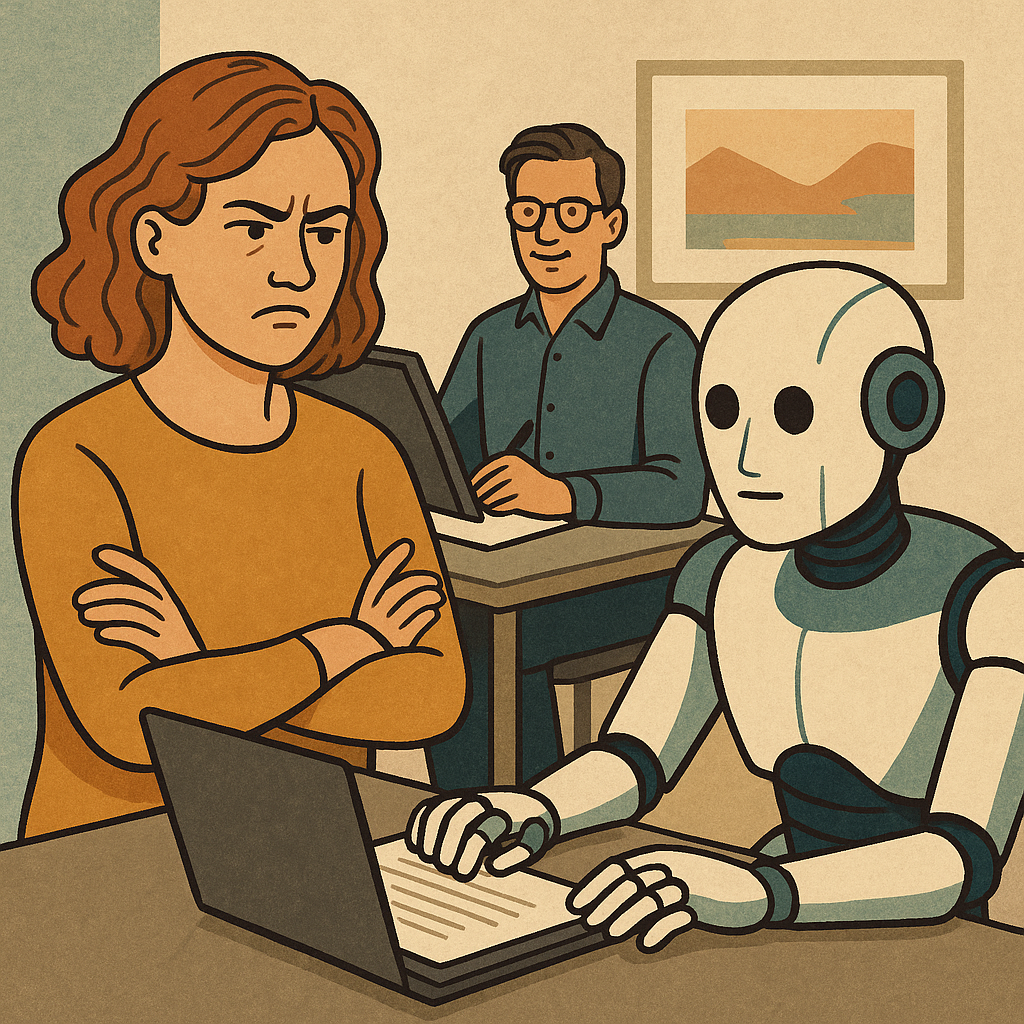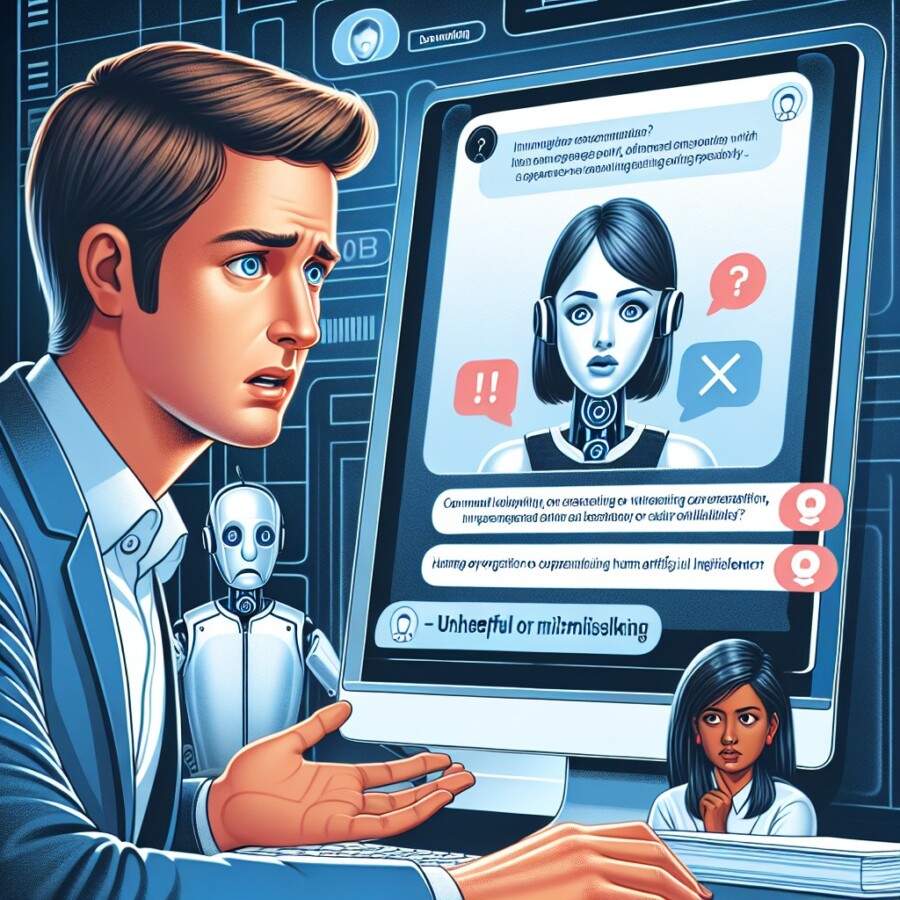People who are unable to burp due to a condition called retrograde cricopharyngeus dysfunction (R-CPD) experience not only physical pain but also embarrassment, anxiety, and depression, according to researchers. R-CPD causes symptoms such as abdominal bloating, gurgling noises from the chest and neck, and flatulence. The study, conducted by a group of academics from a Texan university, found that many doctors are unfamiliar with the disease, leaving patients underserved. The researchers emphasized the need for more research and awareness of R-CPD, as it can have negative effects on sufferers’ quality of life, both mentally and socially.
R-CPD, also known as “no burp syndrome,” occurs when the cricopharyngeal muscle in the throat is unable to relax, preventing gas from passing upwards. One treatment option for this condition is Botox injections, which relax the cricopharyngeus muscle. Yakubu Karagama, an ear, nose, and throat consultant at London’s Guy’s and St Thomas’ Hospital, has been using this treatment since 2016 and has found it to be life-changing for his patients. However, Botox injections are currently only available as a private treatment due to the lack of awareness among healthcare professionals.
Mr. Karagama highlighted the lack of understanding about burping physiology and the condition itself. He mentioned that many people with R-CPD are unaware that their symptoms are caused by the condition and have been living with it their whole lives. He stressed the need for funding to support clinical research into R-CPD, as many people are suffering unnecessarily.
The study revealed that there is limited awareness of R-CPD among healthcare professionals, leading to inadequate help for patients. The authors emphasized the importance of improving understanding of the disease, as it could lead to increased diagnosis and treatment rates, ultimately improving patients’ quality of life. The study also noted the prevalence of psychiatric symptoms in people with difficult-to-diagnose disorders, highlighting the need to explore the mental health implications of R-CPD.
In conclusion, R-CPD can have a significant impact on the quality of life of those affected, causing physical discomfort as well as emotional distress. The lack of awareness among healthcare professionals contributes to the underserving of patients with this condition. Further research and awareness are necessary to improve diagnosis and treatment rates, ultimately leading to better outcomes for individuals with R-CPD.
Original news source: Non-burping can damage quality of life, researchers say (BBC)
🎧 Listen:
Slow
Normal
Fast
📖 Vocabulary:
| 1 | retrograde | Moving backward or having a backward motion or direction |
| 2 | dysfunction | Impaired or abnormal functioning |
| 3 | abdominal | Relating to the stomach or the front part of the body below the ribs |
| 4 | gurgling | A bubbling sound like that made by water flowing over rocks |
| 5 | flatulence | The accumulation of gas in the alimentary canal |
| 6 | academics | Scholars or experts in a particular branch of study |
| 7 | underserved | Not receiving adequate service or attention |
| 8 | awareness | Knowledge or perception of a situation or fact |
| 9 | cricopharyngeal | Pertaining to the muscle at the top of the esophagus |
| 10 | Botox | A drug made from botulinum toxin, often used for cosmetic purposes |
| 11 | consultant | A professional who provides expert advice in a particular field |
| 12 | physiology | The study of the physical and biochemical functions of living organisms |
| 13 | prevalence | The frequency or rate of occurrence of a particular condition |
| 14 | psychiatric | Relating to the mind or mental illness and its treatment |
| 15 | distress | Extreme anxiety, sorrow, or pain |
Group or Classroom Activities
Warm-up Activities:
– News Summary
Instructions: Divide the class into pairs. Assign each pair a different section of the article to read and summarize. Instruct them to condense the main points of their section into a brief news summary. After a few minutes, have pairs share their summaries with the class.
– Opinion Poll
Instructions: Ask the class to form small groups. Give each group a few minutes to discuss their opinions on the topic of the article – specifically, the impact of R-CPD on individuals’ quality of life and the lack of awareness among healthcare professionals. Then, have each group create a set of survey questions to gauge the opinions of others in the class. Afterward, have groups take turns asking their questions and recording the responses.
– Sketch It
Instructions: Provide each student with a piece of paper and a pen or pencil. Instruct them to read the article and choose one aspect or concept related to R-CPD that they find interesting or significant. Then, have students sketch a visual representation of their chosen aspect or concept. Afterward, have students share their sketches with a partner and explain the meaning behind their drawings.
– Vocabulary Pictionary
Instructions: Write a list of key vocabulary words from the article on the board. Divide the class into teams. One student from each team will come to the front of the class and choose a word from the list. Without speaking, they must draw a picture to represent the word while their team tries to guess what it is. The team that guesses correctly earns a point. Rotate players and continue until all the words have been drawn.
– Future Predictions
Instructions: Instruct the class to imagine that it is ten years in the future. Ask them to discuss in pairs or small groups how they think the understanding and treatment of R-CPD may have changed. Encourage them to make predictions based on advancements in medical research and technology. Afterward, have each group share their predictions with the class and facilitate a brief discussion.
🤔 Comprehension Questions:
1. What are the physical symptoms experienced by people with R-CPD?
2. How does R-CPD affect the quality of life of sufferers?
3. What treatment option is available for R-CPD?
4. Why are Botox injections currently only available as a private treatment?
5. What is the main issue highlighted by Mr. Karagama regarding R-CPD?
6. What did the study reveal about the awareness of R-CPD among healthcare professionals?
7. What did the authors of the study emphasize as the importance of improving understanding of R-CPD?
8. What is the conclusion of the article regarding R-CPD and its impact on individuals?
Go to answers ⇩
🎧✍️ Listen and Fill in the Gaps:
People who are unable to burp due to a condition called retrograde (1)______ dysfunction (R-CPD) experience not only physical pain but also (2)______, (3)______, and depression, according to researchers. R-CPD causes symptoms such as abdominal bloating, gurgling noises from the chest and neck, and flatulence. The study, conducted by a group of academics from a Texan university, found that many doctors are unfamiliar with the disease, (4)______ patients underserved. The researchers emphasized the need for more research and awareness of R-CPD, as it can have negative effects on sufferers’ quality of life, both mentally and socially.
R-CPD, also known as “no burp syndrome,” occurs when the cricopharyngeal (5)______ in the throat is unable to relax, (6)______ gas from passing upwards. One treatment option for this condition is Botox (7)______, which relax the cricopharyngeus muscle. Yakubu Karagama, an ear, nose, and throat consultant at London’s Guy’s and St Thomas’ (8)______, has been using this treatment since 2016 and has found it to be life-changing for his patients. However, Botox injections are currently only available as a private treatment due to the lack of awareness among healthcare professionals.
Mr. Karagama highlighted the lack of understanding about burping physiology and the (9)______ itself. He (10)______ that many people with R-CPD are unaware that their symptoms are caused by the condition and have been living with it their whole (11)______. He stressed the need for funding to support clinical research into R-CPD, as many people are suffering unnecessarily.
The study revealed that there is limited (12)______ of R-CPD among healthcare professionals, leading to inadequate help for patients. The authors emphasized the importance of improving understanding of the disease, as it could lead to increased diagnosis and treatment rates, ultimately improving (13)______’ quality of life. The study also noted the prevalence of psychiatric symptoms in people with difficult-to-diagnose disorders, (14)______ the need to explore the mental health implications of R-CPD.
In conclusion, R-CPD can have a significant impact on the quality of life of those affected, causing physical discomfort as well as emotional distress. The lack of awareness among healthcare (15)______ contributes to the underserving of patients with this condition. Further research and awareness are (16)______ to improve diagnosis and treatment rates, ultimately leading to better outcomes for individuals with R-CPD.
Go to answers ⇩
💬 Discussion Questions:
Students can ask a partner these questions, or discuss them as a group.
1. What is retrograde cricopharyngeus dysfunction (R-CPD) and how does it affect individuals?
2. How would you feel if you were unable to burp? Why?
3. Do you think it is important for healthcare professionals to be aware of conditions like R-CPD? Why or why not?
4. Have you ever experienced a medical condition that was difficult to diagnose? How did it impact your life?
5. What are some potential challenges faced by individuals with R-CPD in their daily lives?
6. How do you think the lack of awareness about R-CPD among healthcare professionals can be addressed?
7. Do you believe that mental health should be a priority when diagnosing and treating difficult-to-diagnose disorders? Why or why not?
8. How do you think the lack of awareness about R-CPD contributes to patients being underserved?
9. Have you ever heard of Botox injections being used as a treatment for medical conditions? What are your thoughts on this?
10. How do you think the lack of understanding about burping physiology impacts individuals with R-CPD?
11. Do you think it is important for individuals with R-CPD to receive funding for clinical research? Why or why not?
12. How do you think increased awareness and understanding of R-CPD could improve diagnosis and treatment rates?
13. Have you ever experienced a medical condition that had negative effects on your mental and social well-being? How did you cope with it?
14. What are some potential ways that individuals with R-CPD can raise awareness about their condition?
15. How do you think improved diagnosis and treatment rates for R-CPD could positively impact the lives of those affected?
Individual Activities
📖💭 Vocabulary Meanings:
Match each word to its meaning.
Words:
1. retrograde
2. dysfunction
3. abdominal
4. gurgling
5. flatulence
6. academics
7. underserved
8. awareness
9. cricopharyngeal
10. Botox
11. consultant
12. physiology
13. prevalence
14. psychiatric
15. distress
Meanings:
(A) A bubbling sound like that made by water flowing over rocks
(B) The frequency or rate of occurrence of a particular condition
(C) Extreme anxiety, sorrow, or pain
(D) A professional who provides expert advice in a particular field
(E) Not receiving adequate service or attention
(F) Knowledge or perception of a situation or fact
(G) Moving backward or having a backward motion or direction
(H) Pertaining to the muscle at the top of the esophagus
(I) The accumulation of gas in the alimentary canal
(J) The study of the physical and biochemical functions of living organisms
(K) A drug made from botulinum toxin, often used for cosmetic purposes
(L) Relating to the mind or mental illness and its treatment
(M) Scholars or experts in a particular branch of study
(N) Relating to the stomach or the front part of the body below the ribs
(O) Impaired or abnormal functioning
Go to answers ⇩
🔡 Multiple Choice Questions:
1. What is one of the symptoms of retrograde cricopharyngeus dysfunction (R-CPD)?
(a) Headache
(b) Joint pain
(c) Dizziness
(d) Abdominal bloating
2. What is another name for retrograde cricopharyngeus dysfunction (R-CPD)?
(a) Silent reflux
(b) Acid reflux
(c) No burp syndrome
(d) Hiatal hernia
3. What is one treatment option for R-CPD?
(a) Antibiotics
(b) Botox injections
(c) Physical therapy
(d) Surgery
4. Why are Botox injections currently only available as a private treatment for R-CPD?
(a) Lack of awareness among healthcare professionals
(b) High cost of the treatment
(c) Limited availability of Botox
(d) Lack of research on the effectiveness of Botox for R-CPD
5. What did the study reveal about awareness of R-CPD among healthcare professionals?
(a) High awareness
(b) Moderate awareness
(c) Limited awareness
(d) Complete awareness
6. What did the study emphasize the importance of improving understanding of?
(a) R-CPD
(b) Acid reflux
(c) Hiatal hernia
(d) Silent reflux
7. What did the study note about the prevalence of psychiatric symptoms in people with difficult-to-diagnose disorders?
(a) They are rare
(b) They are non-existent
(c) They are unrelated to the disorders
(d) They are common
8. What is the main conclusion of the article?
(a) Botox injections are the only effective treatment for R-CPD
(b) R-CPD can significantly impact quality of life
(c) Healthcare professionals are knowledgeable about R-CPD
(d) Further research is not necessary for R-CPD
Go to answers ⇩
🕵️ True or False Questions:
1. False: Further research and awareness are unnecessary to improve diagnosis and treatment rates for R-CPD.
2. False: Retrograde cricopharyngeus dysfunction (R-CPD) does not cause physical pain, embarrassment, anxiety, or depression.
3. False: Symptoms of R-CPD include constipation, stomach discomfort, and digestion issues.
4. False: Botox injections cannot be used as a treatment option for R-CPD.
5. Limited awareness of R-CPD among healthcare professionals leads to inadequate help for patients.
6. Lack of understanding about burping physiology and R-CPD contributes to the suffering of many people.
7. Many doctors are unfamiliar with R-CPD, leaving patients underserved.
8. Botox injections for R-CPD are currently only available as a private treatment.
Go to answers ⇩
📝 Write a Summary:
Write a summary of this news article in two sentences.
Check your writing now with the best free AI for English writing!
Writing Questions:
Answer the following questions. Write as much as you can for each answer.
Check your answers with our free English writing assistant!
1. What are some of the symptoms experienced by people with retrograde cricopharyngeus dysfunction (R-CPD)?
2. Why are many doctors unfamiliar with R-CPD?
3. What is one treatment option for R-CPD?
4. Why are Botox injections currently only available as a private treatment?
5. What are the potential mental health implications of R-CPD?
✅ Answers
🤔✅ Comprehension Question Answers:
1. What are the physical symptoms experienced by people with R-CPD?
Symptoms include abdominal bloating, gurgling noises from the chest and neck, and flatulence.
2. How does R-CPD affect the quality of life of sufferers?
R-CPD can cause physical pain, embarrassment, anxiety, and depression, leading to a negative impact on the quality of life of sufferers.
3. What treatment option is available for R-CPD?
Botox injections can be used to relax the cricopharyngeal muscle and treat R-CPD.
4. Why are Botox injections currently only available as a private treatment?
Botox injections are currently only available as a private treatment due to the lack of awareness among healthcare professionals.
5. What is the main issue highlighted by Mr. Karagama regarding R-CPD?
Mr. Karagama highlighted the lack of understanding about burping physiology and the condition itself, leading to underdiagnosis and inadequate help for patients.
6. What did the study reveal about the awareness of R-CPD among healthcare professionals?
The study revealed limited awareness of R-CPD among healthcare professionals, leading to inadequate help for patients.
7. What did the authors of the study emphasize as the importance of improving understanding of R-CPD?
The authors emphasized the importance of improving understanding of R-CPD to increase diagnosis and treatment rates, ultimately improving patients’ quality of life.
8. What is the conclusion of the article regarding R-CPD and its impact on individuals?
The article concludes that R-CPD can have a significant impact on the quality of life of those affected, both physically and emotionally. The lack of awareness among healthcare professionals contributes to the underserving of patients with this condition, and further research and awareness are necessary to improve diagnosis and treatment rates.
Go back to questions ⇧
🎧✍️✅ Listen and Fill in the Gaps Answers:
(1) cricopharyngeus
(2) embarrassment
(3) anxiety
(4) leaving
(5) muscle
(6) preventing
(7) injections
(8) Hospital
(9) condition
(10) mentioned
(11) lives
(12) awareness
(13) patients
(14) highlighting
(15) professionals
(16) necessary
Go back to questions ⇧
📖💭✅ Vocabulary Meanings Answers:
1. retrograde
Answer: (G) Moving backward or having a backward motion or direction
2. dysfunction
Answer: (O) Impaired or abnormal functioning
3. abdominal
Answer: (N) Relating to the stomach or the front part of the body below the ribs
4. gurgling
Answer: (A) A bubbling sound like that made by water flowing over rocks
5. flatulence
Answer: (I) The accumulation of gas in the alimentary canal
6. academics
Answer: (M) Scholars or experts in a particular branch of study
7. underserved
Answer: (E) Not receiving adequate service or attention
8. awareness
Answer: (F) Knowledge or perception of a situation or fact
9. cricopharyngeal
Answer: (H) Pertaining to the muscle at the top of the esophagus
10. Botox
Answer: (K) A drug made from botulinum toxin, often used for cosmetic purposes
11. consultant
Answer: (D) A professional who provides expert advice in a particular field
12. physiology
Answer: (J) The study of the physical and biochemical functions of living organisms
13. prevalence
Answer: (B) The frequency or rate of occurrence of a particular condition
14. psychiatric
Answer: (L) Relating to the mind or mental illness and its treatment
15. distress
Answer: (C) Extreme anxiety, sorrow, or pain
Go back to questions ⇧
🔡✅ Multiple Choice Answers:
1. What is one of the symptoms of retrograde cricopharyngeus dysfunction (R-CPD)?
Answer: (d) Abdominal bloating
2. What is another name for retrograde cricopharyngeus dysfunction (R-CPD)?
Answer: (c) No burp syndrome
3. What is one treatment option for R-CPD?
Answer: (b) Botox injections
4. Why are Botox injections currently only available as a private treatment for R-CPD?
Answer: (a) Lack of awareness among healthcare professionals
5. What did the study reveal about awareness of R-CPD among healthcare professionals?
Answer: (c) Limited awareness
6. What did the study emphasize the importance of improving understanding of?
Answer: (a) R-CPD
7. What did the study note about the prevalence of psychiatric symptoms in people with difficult-to-diagnose disorders?
Answer: (d) They are common
8. What is the main conclusion of the article?
Answer: (b) R-CPD can significantly impact quality of life
Go back to questions ⇧
🕵️✅ True or False Answers:
1. False: Further research and awareness are unnecessary to improve diagnosis and treatment rates for R-CPD. (Answer: False)
2. False: Retrograde cricopharyngeus dysfunction (R-CPD) does not cause physical pain, embarrassment, anxiety, or depression. (Answer: False)
3. False: Symptoms of R-CPD include constipation, stomach discomfort, and digestion issues. (Answer: False)
4. False: Botox injections cannot be used as a treatment option for R-CPD. (Answer: False)
5. Limited awareness of R-CPD among healthcare professionals leads to inadequate help for patients. (Answer: True)
6. Lack of understanding about burping physiology and R-CPD contributes to the suffering of many people. (Answer: True)
7. Many doctors are unfamiliar with R-CPD, leaving patients underserved. (Answer: True)
8. Botox injections for R-CPD are currently only available as a private treatment. (Answer: True)
Go back to questions ⇧















